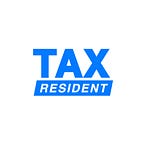Tax Resident Nowhere: Truth or Myth
In today’s world, people are more mobile than ever. With all the modern advancements in travel, it is becoming harder to control the movement of every individual person. If it’s not possible accurately determine the duration of a particular person’s stay in a particular country, that means big trouble for his status as a tax resident.
So many people have the feeling that they stopped being tax residents of certain States because of frequent changes of location — thinking that, therefore, they are not subject to tax regulation and tax control. As a result, this logically leads them to think that they don’t have to pay taxes at all, since they are tax non-residents of the States they have visited for less than 183 days.
Unfortunately for them, modern legal systems and modern international law aren’t built that way. Individuals will lose their tax residency status, otherwise this would all lead to mass tax abuse.
Most countries of the world include in their laws and international treaties not only the “183-day rule”, but also other methods of determining tax residency, for example, the principle of “closest connection”, the principle of “center of economic and vital interests”, the principle of “settlement” and many others.
In some states, the relationship between citizenship and tax residency remains, and some countries even set shorter deadlines for getting tax resident status in connection with employment or the fact of being in the country for a longer period than in other countries.
For example, in the United States of America, all citizens are considered tax residents, but, if someone terminates their citizenship, that person has to pay the so-called “exit tax” in order to be considered a tax non-resident of the United States.
A number of CIS countries, such as Azerbaijan, Uzbekistan, according to their legislation, allow the possibility of being recognized as a tax resident of the State if he or she has a “center of vital interests” in these countries, for example, a house or other apartment, a family, or the main place of professional or other activity.
In South Korea, a person can become a tax resident if he owns real estate in this country and lives in that specified property with his family.
The EU countries prefer to use the principle of the “center of economic interests”, unfortunately, there is no clear definition of this principle and the format of its application is determined in each case separately. It is also important to note that your goals shouldn’t be recognized as a tax non-resident of an EU country, because this could have some negative consequences, even if you won’t feel it immediately.
As a rule, tax non-residents pay taxes not from their worldwide income, but only from the income that is received from the territory of a certain State, the so-called “withholding tax”.
Tax rates for non-residents in most countries of the world significantly exceed the tax rates for residents. For example, in Russia, residents pay 13% tax on personal income, while non-residents pay 30%, which is 2.3 times more than residents’ taxes.
At the same time, in addition to the fact that the rate itself is large, double taxation agreements allow you to offset the tax paid abroad, but do not allow you to take into account the amount of tax exceeding the rate in your country of residence. Because of this, it can happen that a person will overpay tax in one country and will not have to pay it in another, but will mathematically lose, since it would be more profitable for them to have residence in the country where they overpaid the tax.
Therefore, in our modern times, it is almost impossible to become a tax non-resident in all the countries of the world. You’re going to have to pay taxes somewhere. At the same time, the desire to become a tax non-resident everywhere can have financially burdensome consequences, since non-residents pay much higher taxes.
Traack your tax residency days with Tax Resident app.
